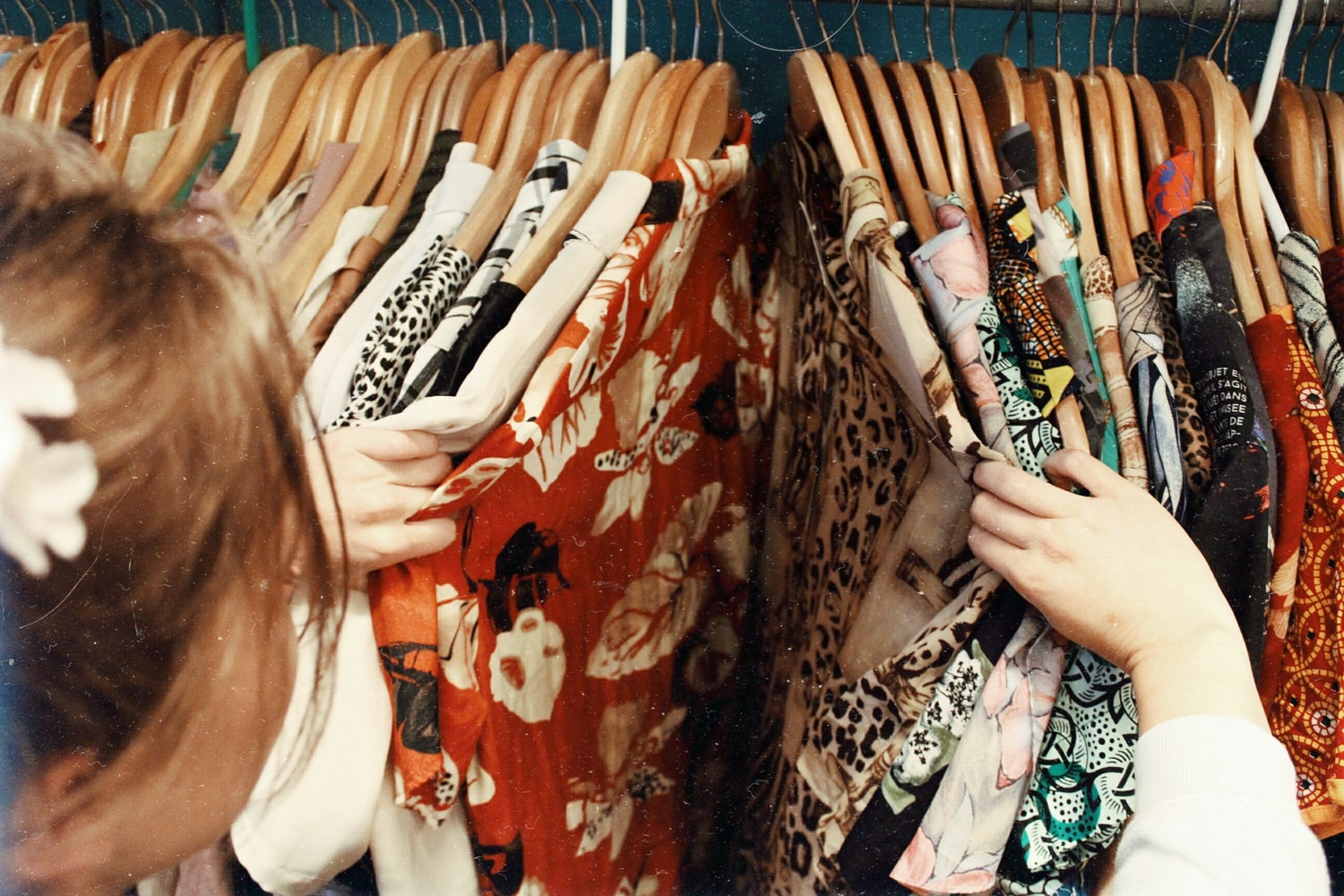Is Depop really the solution to fast fashion?

Georgia Balmer considers whether Depop is truly the ethical and sustainable alternative to fast fashion that it presents itself to be.
There is nothing worse than finding the perfect, never-felt-sexier, praying that you run into your ex to prove just how well you’re doing outfit, and realising that someone else is wearing the exact same thing. Depop can make it feel like you’ve found a hidden gem, a one-off piece that you’re unlikely to run into on a sweaty dance floor. Yet, now that the once treasure trove of thrifted items is overrun with the AliExpress and fast fashion dumps of entrepreneurial users, is Depop really the best place for savvy fashionistas?
Since launching in 2011, Depop has become the ‘it’ brigade’s go-to for one-off pieces and vintage finds. Not as chintzy as Etsy and without the middle-aged cat lady demographic of eBay, Depop positioned thrifted and second hand as cool and desirable. Most importantly, Depop managed to capitalise on the growing power status of ‘sustainability’. After all, the cool kids are drinking oat milk lattes, thrifting, and going plastic-free now, or haven’t you heard?
This should be a good thing, and Depop itself has defined its mission as “a global community of buying, selling and connecting to make fashion more inclusive, diverse and less wasteful”. Like most good things, however, it is too good to be true.
For lower-income households who rely on charity shops and thrift stores, the gentrification of essential items to be sold on Depop is more than just an annoying trend.
As Depop has expanded to over 30 million users worldwide, the ability to build a business through the selling platform has grown exponentially. With this, £3 charity shop finds are touted as ‘rare’ Y2K pieces at ten times the buying price, whilst popular brands, such as Juicy Couture, are like gold dust on the site. For lower-income households who rely on charity shops and thrift stores, the gentrification of essential items to be sold on Depop is more than just an annoying trend.
With lockdown seeing two-thirds of the UK population donate their clothes to charity, this has only resulted in a higher number of items being sorted into a lower amount of stock. Our dependence on fast fashion – in the UK we buy more clothes per person than any other European country – has resulted in lower quality wardrobes. Most donated clothes never reach the charity shop floor to be upsold on Depop. With prices rapidly climbing on the app and forcing charity shops to do the same, Depop is hardly an “inclusive” phenomenon. Nor is it truly sustainable, as its model is slowly forcing good quality stock to be depleted from charity shops and thrift stores.
The solution for many sellers is AliExpress and other bulk buying platforms, branding fast fashion items as unique, vintage pieces. The term Y2K can allow sellers to increase their prices in the vacuum of this juggernaut trend, and most buyers will not understand that they aren’t buying the real ‘vintage’ thing. Not only is Depop failing to regulate sellers pushing fast fashion items, but it is actively promoting them through its algorithm. As a platform, Depop has arguably grown too big to be truly sustainable and hold itself accountable to its purpose.
Depop has become an offshoot of the fast fashion industry, a second, morally superior, stage before landfill.
Instead, Depop has become an offshoot of the fast fashion industry, a second, morally superior, stage before landfill. Feeding the demand for easy online shopping, fast trends, and unregulated quality under the guise of sustainability, Depop facilitates the fast fashion industry and its contribution to global carbon emissions – currently 10%. For those wanting to boycott the complicated nuance of Depop’s definition of sustainability, platforms such as Vinted and Esooko, and vintage Facebook groups are becoming increasingly popular.
It is unfair to say that every Depop user is naive to the nuance of sustainable shopping, but the app is making it increasingly difficult to make informed purchases on their platform. Buying through Depop is not the simple sustainable choice that the app is trying to sell us, and with the consequences of climate change becoming increasingly clear, we should really stop celebrating their poor effort. Thrifting and shopping second hand could help significantly reduce the fashion industry’s carbon emission and dire impact on the global community, but we should maybe address our insistent hunger for new ‘things’ first.


